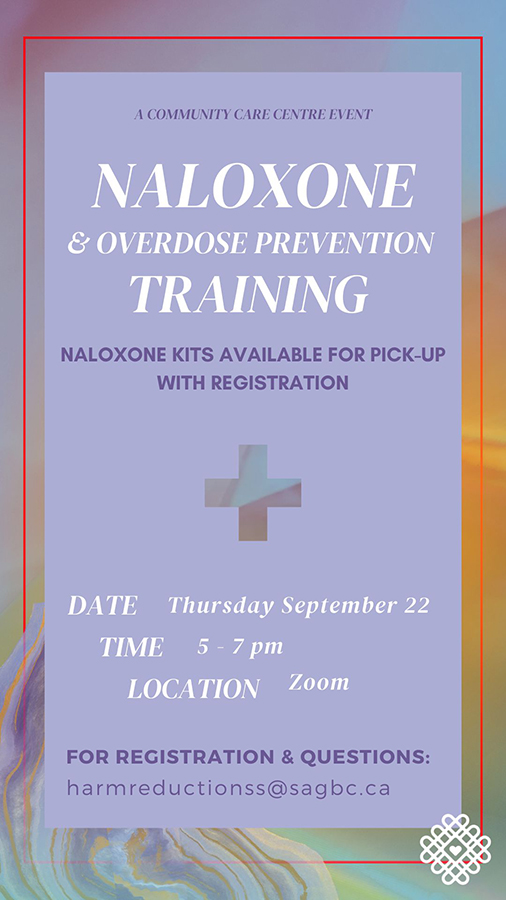Community Care Centre brings back overdose prevention training in virtual format.
Overdose deaths have been on the rise in recent years.
In fact, statistics from the Government of Canada show that in late 2019, just prior to the pandemic, overdose death numbers were just under 1,200.
Once the pandemic started, overdose deaths rose and remained around the 1,800 mark – with expectations that they could rise even higher before the end of 2022.
To fight back against the rising epidemic and protect students who may use drugs, the Community Care Centre (CCC) is bringing back their overdose prevention training.
Running virtually Sept. 22, from 5 p.m. to 7 p.m., those who attend will not only learn how to administer naloxone, but they will also have a better understanding of how to recognize overdoses, systemic concerns related to overdose, different methods of harm reduction, and more.
The need for this kind of training is evident says Samantha MacRae, support staff harm reduction worker with CCC, as the pandemic quickly changed even basic overdose prevention methods.
“COVID-19 fundamentally altered the way that all of us live and that includes people who use substances and/or are in community with people who use. Previous overdose prevention methods (ex. not using substances alone) became less accessible than they were, and the outcome has been an increase in overdose across the GTA,” said MacRae. “In response, conversations around prevention, harm reduction and overdose are becoming less stigmatized, students are hearing about it more in their classrooms. The school of Community Services has been a long-time champion of naloxone training for their students, but more recently we are getting requests from Health Sciences, Construction and Hospitality faculty who have shown interest in sharing the training with their students.”
Training is open to anyone who wishes to attend, however, the CCC always prioritizes six equity groups including black students, Indigenous students, students with disabilities, international and racialized students, LGBTQ students, and women and trans students.
There are 30 available spots for the training this week, and MacRae says the CCC is committed to ensuring that this training is able to run multiple times in the coming months.
Even if you are not able to attend, MacRae encourages those with interest to contact them so they can see the demand for training of this nature.
“We all deserve safety and community care. Overdose prevention and naloxone trainings can be a useful skill in keeping themselves and their communities safe.”
Those who wish to attend can contact HarmReductionSs@SAGBC.ca.


